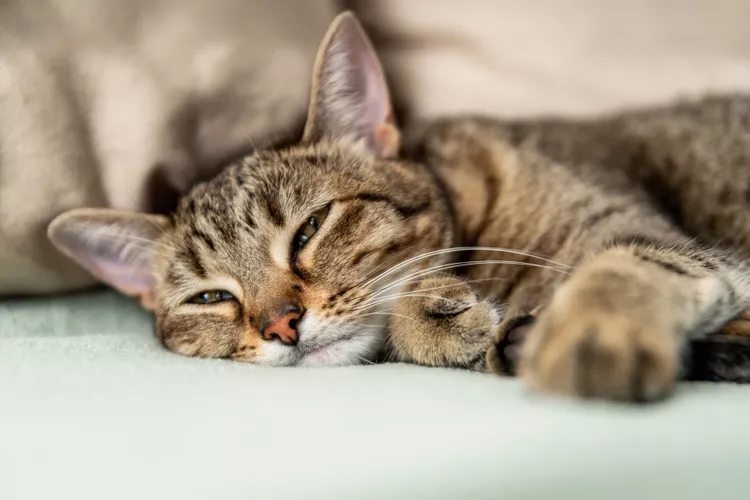
When a cat's normal behavior changes subtly or dramatically, a conscientious owner can't help but feel concerned. Knowing what is "normal" for your cat will make it easier to recognize behavioral problems that arise. Some changes can indicate underlying health or social issues, while others are simply personality quirks that arise as your cat grows older. Learn the differences—for both your cat's well-being and your peace of mind.
Some cats have a stronger prey drive and will act aggressively toward toys, children, other pets, or even their owners. This aggressive behavior is natural, but if a normally mellow cat suddenly starts acting aggressively, then this is a cause for concern.
Pain and fear are often the reasons for a cat to exhibit unprecedented—or unprovoked—aggression. Events that can cause a cat to be fearful include:
Resolving the aggressive behavior may mean finding and eliminating the cause of the pain or fear, using medications and behavior supplements, and reassuring your cat. Discipline is not the solution for aggressive behavior in cats.
Cats are creatures of habit. They will quickly learn when it's meal time if you meal feed or that there is always food available if you elect to leave a bowl out. If your cat's speed of eating or the amount of food consumed changes drastically, then it may signal a problem such as:
Some cats are naturally more playful than others and, just like people, they have individual personalities. But when a regularly playful cat doesn't want to play like it used to, it may be cause for concern. A cat that doesn't feel well or is in pain may not want to jump around and chase toys. A veterinary visit may be in order if your cat does not return to a normal playful cat after a couple of days.
Cats that do not feel well or are scared are likely to hide, Stressful or traumatic events may also precipitate hiding, including:
If the hiding is due to an event, then your cat should return to normal after a few days, If it is due to an illness or pain, the cat may need to be examined by a veterinarian.
One of the main reasons cats are relinquished, euthanized, or abandoned is the development of a urinary or fecal elimination problem. Behavior changes in the urination and defecation habits of your cat are most often related to stress, fear, or a lack of appropriate, clean, litter box options.
Some cats suddenly choose to defecate and/or urinate outside of their box, and this behavior is your cat trying to tell you something. They may not like the size of the box, the kind of litter, how dirty the litter is, the placement of the box, or the number of litter box options they have.
In some cases, cats may be trying to tell you that they don't feel well and that they have a urinary tract infection or pain from a digestive tract problem. If you notice abnormally large clumps of litter from urine, spots of blood in the litter box, absent or very small clumps of litter from urine, or your cat is straining, crying, or eliminating outside of the litter box, you should not hesitate to visit the veterinarian to address the potentially life-threatening infection.
Many other things can cause elimination behavior changes and even the experts do not fully understand all the reasons behind them. Medical reasons for elimination behavior changes should always be ruled out before fixing any environmental issues.
Scratching is a normal cat behavior, but if your cat suddenly starts scratching more, especially in one particular spot, it could be an indication that it is stressed. Nutritional supplements designed to relax your cat without sedating it, as well as pheromones, may help lower your cat's stress level.
Otherwise, think about any changes in the environment that may have negatively impacted your cat and do your best to correct them.
Cats who are not feeling well may sleep more than usual. There is, of course, the simple possibility that your cat is just lazy and/or overweight, but if a cat starts sleeping more than it used to, you should schedule a visit to your veterinarian.
Grooming is a natural cat activity. They typically groom themselves and others when they are relaxed or feel as though their fur is messy. Cats that stop grooming or have a major decrease in self-grooming may be ill and should be checked out by a veterinarian.
Sometimes cats who are gaining weight are unable to reach certain areas of their body; therefore, they are unable to groom themselves. This can be fixed by helping your cat to lose the extra weight with less food or a lower-calorie diet.
Sore joints and muscles are also a contributing factor in grooming. Cats that have osteoarthritis or injuries may not be able to reach certain areas to groom that they were once able to reach.
Cats have many vocalizations and reasons for making them. Possibilities include:
Assess the situation and think about what changes could be causing the vocalizations. If you cannot think of any reasons for the sudden noises your cat is making, consider scheduling a visit with your veterinarian to see if there is a medical reason causing distress in your cat.
Any change in a cat's behavior could be considered an emergency, so if you're unsure, promptly schedule a vet visit. Sudden reclusive behavior, lethargy, or aggression are possible indicators of pain or illness that should be diagnosed and treated as soon as possible.
Minor changes in behavior, or those that appear and pass quickly, are rarely cause for concern and can be chalked up to cat quirks.

Cute Pictures & Facts About Calico Cats & Kittens
Learn fascinating facts about calico cats, including photos, the genetics behind this color combination, and common folklore and traditions.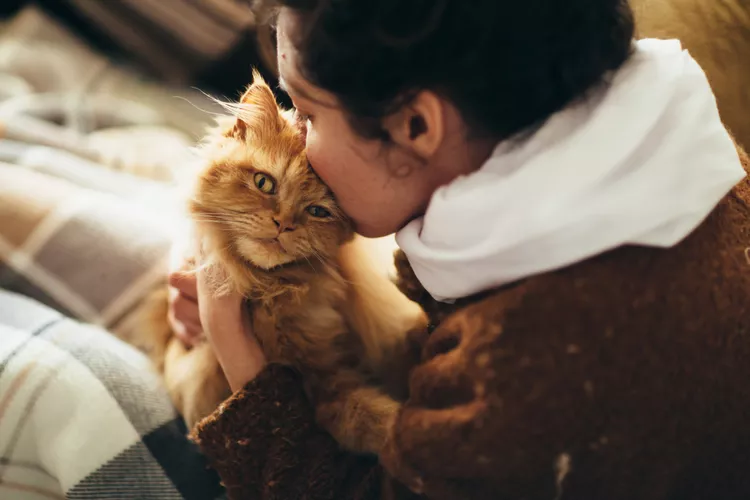
How to Prevent Cat Separation Anxiety During Vacations
Discover why cats develop litter box problems and cat behavior problems when you go on vacation and what you can do about it to help them.
Cat Behavior Changes That Might Mean Something's Wrong
Cats' behavioral changes may indicate problems—or they may mean nothing at all. Explore causes of odd behavior and what to do about them.
Lhasa Apso: Dog Breed Characteristics & Care
The Lhasa apso is an ancient breed from Tibet that was bred to be a watchdog. Learn about its history, health, exercise needs, and more.
Reasons Why Dogs Run Away and How to Stop It
Dogs can escape, especially if they’re bored and not properly contained. Here are some techniques for stopping your dog from running away.
Can Dogs Get Depression? How to Help Your Sad Dog
Can dogs get depression? Learn about the signs of depression in dogs and find out how to help your sad dog.
How to Stop Aggression in Dogs
Dog aggression can be a serious behavior issue for pet owners. Learn how to stop aggression in dogs before someone gets hurt.
How to Stop Your Dog From Growling
A growling dog can soon become even more aggressive. Reduce the noise and potential for a dangerous situation with some of these techniques.
Why Do Dogs Dig Holes? How to Stop Your Dog from Relandscaping Your Yard
Dogs have been digging holes for centuries and for many reasons. Whether they’re bored or want to cool off in the dirt, here are the top reasons why dogs dig holes.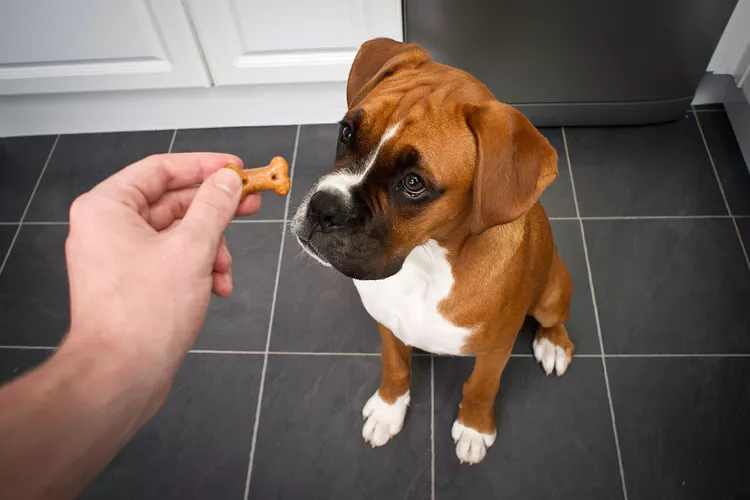
Dog Treat Varieties
Learn about the different types of dog treats on the market and decide which are best for your dog.
Can Dogs Eat Asparagus?
Dogs can eat asparagus, provided the vegetable is cooked plain and cut up for them. Seasonings, salt, and butter make it unhealthy for dogs.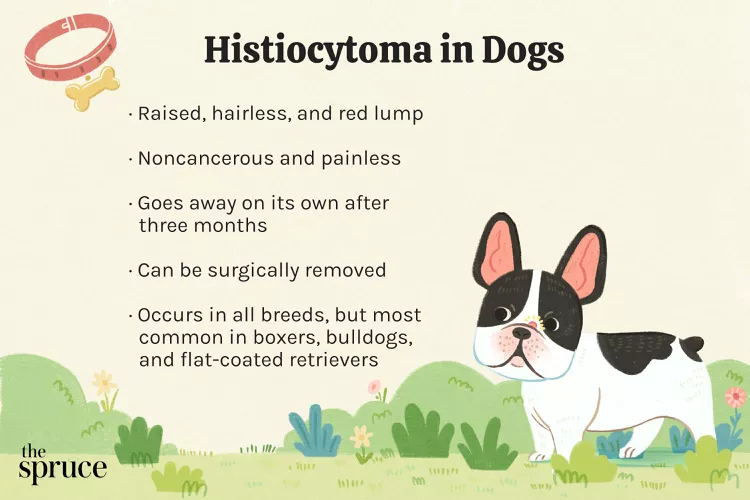
Histiocytomas in Dogs
A histiocytoma is a type of benign (non-cancerous) skin lump that usually affects young dogs. Learn the causes, treatment, and prevention.
Why Is My Dog’s Eye Swollen?
If your dog's eye is swollen, she may need veterinary attention. The inflammation could be caused by allergies, an injury, or even a tumor.
Common Bugs and Parasites Found on and Inside Dogs
Learn about common types of parasites in dogs. Find out how to treat and prevent parasites to keep your dog, your family, and yourself safe.
Exploring the Different Types of Pet-Friendly Beaches
Are you looking for pet-friendly beaches? Learn about the different types of pet-friendly beaches, their locations, and tips for visiting them with your pet.
10 Obscure, Little-known Canine Facts in Honor of National Dog Day
With National Dog Day upon us, it's time to celebrate everything about our favorite pets—even the weirder stuff. Here are 10 obscure facts about dogs you probably didn't know.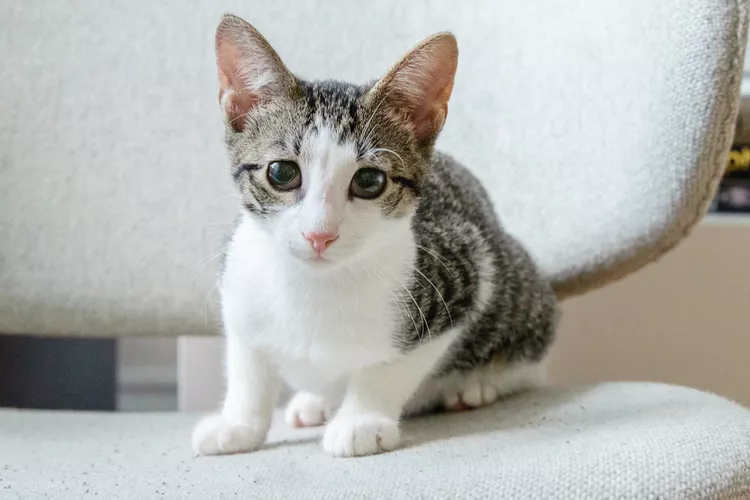
Kitten Development From 3 to 6 Months Old
Kittens grow and change a lot during their first year. Find out what happens between the ages of three months and six months old.
95 Siamese Cat Names
Our list of Siamese cat names has diverse and fun options to help you choose the ideal moniker for your elegant and lovable feline companion.
What to Buy for Your New Cat: A List of Essentials
Before you bring your new cat or kitten home, there are a number of things to collect or buy so your cat will feel welcomed like a family member.
The 6 Best Cat Nail Clippers of 2024 for a Safe Trim
Clipping your cat's nails can save your furniture and keep your kitty comfortable. We asked veterinarians for their cat nail clipper recommendations.